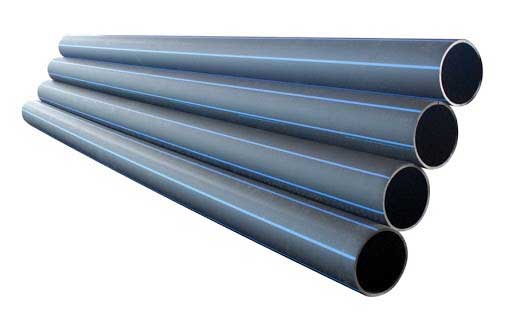hdpe pipe suppliers Midland TX: Checklist for Contractors
Understanding the Secret Advantages of HDPE Pipeline for Water and Wastewater Administration
The usage of HDPE pipeline in water and wastewater management offers countless advantages that merit consideration. Its outstanding toughness and long life-span make it a preferred choice for numerous tasks. Additionally, the material's resistance to deterioration and chemical damages enhances its dependability in numerous atmospheres. The benefits prolong past just long life and resistance. Pipe Manufacturing Midland TX. Exploring its cost-effectiveness and ecological influence reveals also much more engaging reasons for its prevalent fostering in modern infrastructure
Remarkable Sturdiness and Long Life

HDPE pipeline stands apart for its outstanding sturdiness and long life, making it a preferred option in water monitoring systems. Created from high-density polyethylene, these pipes can endure significant stress and stress, making certain trusted performance over time. Their durable nature permits them to sustain severe ecological problems, including temperature changes and soil movements, which can cause other materials to fail.
The lifespan of HDPE pipelines usually exceeds 50 years, giving a cost-efficient remedy for districts and markets alike. In addition, the product's light-weight residential properties streamline installation, lowering labor expenses and timeframes. This resilience reduces the requirement for regular repairs or replacements, further improving its economic allure.
In water administration applications, the integrity of HDPE pipes implies less disturbances and enhanced solution connection, making them essential to lasting framework development. The mix of durability and long life strengthens HDPE's duty as a cornerstone in efficient water administration solutions.

Resistance to Rust and Chemical Damages
While many materials surrender to deterioration and chemical damages in time, HDPE pipes show amazing resistance, making them suitable for different water administration applications. This durability comes from the molecular structure of high-density polyethylene, which is naturally non-reactive and does not rust like steels or weaken from exposure to extreme chemicals. As an outcome, HDPE is highly efficient in environments with hostile materials, such as wastewater systems that may have acids, bases, and organic solvents.
In addition, HDPE pipelines can hold up against environmental factors such as soil level of acidity and saline problems, even more improving their viability for diverse applications (American Plastics HDPE Pipe for Oilfield). Their ability to preserve architectural integrity with time lowers the risk of leaks and failures, which is crucial in ensuring the safety and security and reliability of water circulation and wastewater management systems. Consequently, the resistance to deterioration and chemical damages substantially contributes to the overall performance and longevity of HDPE piping services
Cost-Effectiveness and Economic Benefits
When thinking about the economic implications of water monitoring systems, the cost-effectiveness of HDPE pipes comes to be apparent. These pipes offer reduced setup and maintenance expenses contrasted to standard products like steel or concrete. Their lightweight nature simplifies transportation and installment, resulting in lowered labor expenses. Additionally, HDPE pipelines display a long life expectancy, usually exceeding half a century, which translates to fewer substitutes and lasting cost savings.
Moreover, the resistance of HDPE to deterioration and chemical damage reduces the requirement for costly repair services and replacements. The pipelines additionally support reliable water flow, lowering power prices connected with pumping systems. By alleviating leaks and water loss, HDPE pipelines add to considerable economic advantages for communities and industries alike. Overall, the initial financial investment in HDPE piping can yield significant financial returns over the lifespan of the water administration system, making it a sensible selection for sustainable infrastructure growth.
Environmental Sustainability and Decreased Impact

Convenience and Adaptability in Installment
Due to their special residential properties, HDPE pipelines supply exceptional adaptability and flexibility in setup, making them suitable for a variety of applications. Their light-weight nature enables easier handling and transportation, minimizing labor costs and installation time. HDPE pipelines can be curved and shaped to fit various surfaces and task requirements, which is especially helpful in challenging environments.
Additionally, their resistance to corrosion and chemical damages permits for installment in varied settings without the need for specialized safety coatings. The ability to fuse joints creates a continuous, leak-free system, improving the total stability and reliability of the installation. HDPE's versatility get more info also accommodates ground movement, reducing the danger of damages in locations prone to moving soil. Generally, these characteristics make HDPE pipelines not just versatile however additionally a recommended choice for water and wastewater management systems.
Regularly Asked Questions
Exactly How Does HDPE Pipe Compare to PVC in Water Management Applications?
HDPE pipe offers superior versatility, resistance to corrosion, and resilience contrasted to PVC. Its lighter weight assists in simpler installment, while its lengthy lifespan decreases replacement prices, making HDPE a preferred option in water monitoring applications.
What Is the Lifespan of HDPE Pipes Under Typical Conditions?
Under typical conditions, HDPE pipelines can have a life-span ranging from 50 to 100 years. Their resilience and resistance to rust add to their lasting efficiency in numerous applications, making them a trusted choice for facilities.
Are HDPE Piping Recyclable After Their Life Span?
Yes, HDPE pipes are recyclable after their solution life. American Plastics HDPE Pipe Manufacturing. They can be refined and repurposed right into new products, considerably lowering environmental impact and advertising sustainability within the sector, making them an environmentally friendly choice for piping solutions
What Is the Setup Process for HDPE Pipes?
The setup process for HDPE pipes involves website prep work, trenching, pipeline combination or mechanical joining, backfilling, and stress testing. Proper techniques assure a resilient and efficient system for delivering water and wastewater effectively.
Can HDPE Piping Be Made Use Of for Both Drinkable and Non-Potable Water Systems?
Yes, HDPE pipelines can be utilized for both safe and clean and non-potable water systems. Their convenience, longevity, and resistance to rust make them appropriate for various applications, guaranteeing safe and efficient transport of water in different contexts.